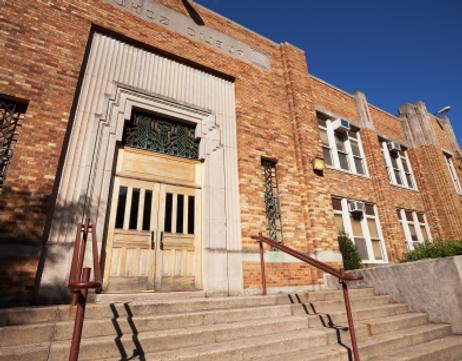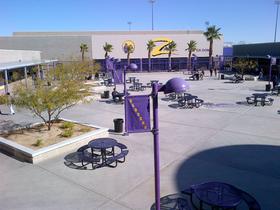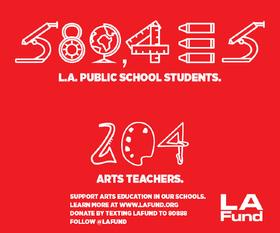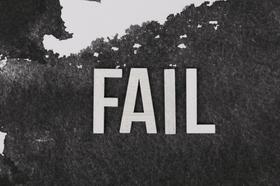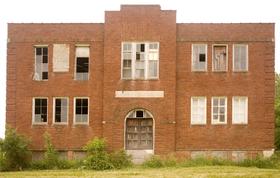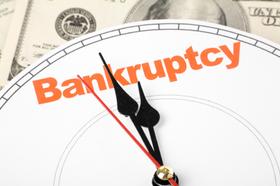Despite heated negotiations that have taken up most of the summer months, Chicago schools did open on time with a full day of school. The teacher’s union failed to file a10-day intent-to-strike by the deadline that would initiate a strike prior to the first school day. However, the sigh of relief breathed by parents, politicians, and members of the school board did not last long. The intent-to-strike was filed a few days later, which puts a walk-out day for teachers on September 10 if a compromise is not found shortly. If CPS teachers pick up the pickets, kids in Chicago schools will get only about a week of education before the entire system grinds to a halt.
This video reports on the 2012 teachers' strike.
Points of Contention
The Chicago Teachers Union and Chicago Public Schools have met a total of 46 times in an effort to find a compromise both sides could swallow. A fact-finder was also brought in over the summer to find a solution to the conflict. The fact-finder told the Chicago Sun-Times that the relationship between the two sides was “toxic.” Some of the points of contention that have not been resolved include:
Teacher Recall: The Chicago Tribune reports that the union wants CPS to hire from a pool of teachers who have been laid off by the district, rather than allowing principals to hire any applicant they choose. However, CPS says that policy may restrict principals from hiring the best applicant for the job if the best applicant happens to come from outside the school district.
Pay Raises: The Chicago School Board has offered teachers a deal that includes a two-percent pay increase each year over the next four years. The deal would cost CPS around $160 million. However, the teachers union has repeatedly said that increase is unacceptable to teachers, who have requested a four-percent pay raise.
Step and Lane Increases: Currently, Chicago teachers receive “step” increases, which are salary increases based on experience. “Lane” increases bump up teachers’ pay based on extra credentials teachers earn. The school board wants to put a halt to such increases, which typically equal about 3.5-percent increases each year. The teachers union finds that unacceptable and “insulting.”
Additional School Hours: Rahm Emanuel pushed to extend the public school day by around 40 minutes to bring Chicago schools in line with the schedules of schools across the country. Teachers refused to work the additional time, particularly in light of the fact they were seeing little if any, increases to their paychecks. This point was settled by allowing schools to bring in additional teachers to cover the extra time.
Smaller Class Sizes: Teachers want to cut down on the size of classes in schools throughout the district, but the school board says there is no money for the additional resources that would be needed. The union also wants schools to add more wraparound services like school counselors to serve the neediest population of students. Again, in a district that is already cash-strapped, additional services and resources seem highly unlikely.
This video reports on the Chicago Teachers Union demands in 2015.
Is a Strike Inevitable?
Despite the fact that delegates for the teachers union voted to approve an intent-to-strike, and the fact that the form was signed, sealed and delivered by union president Karen Lewis, that doesn’t mean a strike is necessarily imminent. Both sides are continuing to negotiate, in hopes that Chicago school children will not be left without a classroom to go to so soon after the start of the academic year. However, the teachers union fully admits that it is mad and it’s not going to take any more from CPS.
“We’ve done everything that’s been asked of us, and we continue to be vilified and treated with disrespect,” Lewis told the Huffington Post. She added that the teachers in the district were “tired of being bullied, belittled and betrayed.”
Lewis has encouraged parents to contact officials of CPS and pressure them to avoid a strike by giving in to some of the union’s demands.
On the flip side, CPS officials are assuring parents that a strike is the last thing they want. Jean Claude-Brizard, CEO of Chicago Public Schools, told the Huffington Post, “That’s why we need to take advantage of each of the next 11 days and work until we reach a fair resolution for our teachers that allow our kids to stay in school where they belong.”
The Future for Chicago Students
Despite assurances from both sides that negotiations are continuing, contingency plans are also being made by the school district in the event a strike does occur. The impact of a strike could be devastating to Chicago students in many ways. In addition to losing valuable academic time, the Chicago Sun-Times reports that more than 11,000 student-athletes would be left out of the competition. Students who qualify for free breakfast and lunch programs would not get their much-needed meals, and college examination scores and teacher recommendations could be delayed.
This video reports on Chicago teachers' demands in 2012.
The school district is working on a way to keep kids in classes at least part-time in the event of a strike. According to briefings reported by the Chicago Tribune, a plan is in motion to set up around 144 schools for four hours each day to accommodate students. The schools would be staffed by district staff, principals, assistant principals, and administrators, as well as the 5,500 members of the Service Employees International Union that are the bus aides, custodians, special education assistants, and security guards that work on campus. While the official list of 144 schools has not been released, the district has indicated that they chose the campuses based upon “safety and security – within the neighborhood and mixing groups of gang affiliations.” A cold lunch would also be served to students.
For high school seniors, they can still earn credit through dual enrollment programs and online classes, and advisors will continue to provide college application support.
Negotiations continue, but with the two sides still miles apart on coming to any sort of agreement, it is anybody’s guess what this school year will look like for Chicago students, parents and educators.
Questions? Contact us on Facebook. @publicschoolreview

